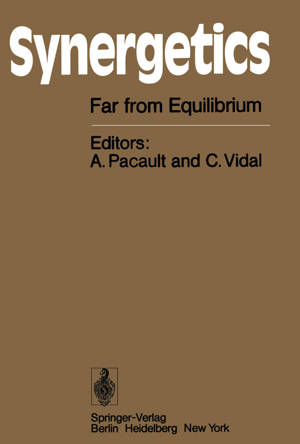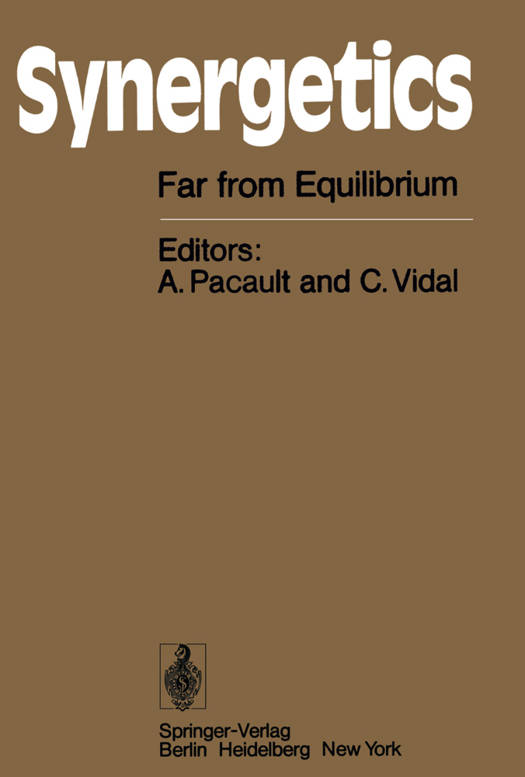
- Afhalen na 1 uur in een winkel met voorraad
- Gratis thuislevering in België vanaf € 30
- Ruim aanbod met 7 miljoen producten
- Afhalen na 1 uur in een winkel met voorraad
- Gratis thuislevering in België vanaf € 30
- Ruim aanbod met 7 miljoen producten
Zoeken
Omschrijving
This volume gathers most of the lectures and communications presented at the meeting t held in Bordeaux from the 27th to the 29 h of September and entitled "Far from equi- librium: instabilities and structures". This meeting is part of a series of seve- ral other interdisciplinary conferences such as Elmau 1972, London 1974, Dortmund 1976, Elmau 1977, Tokyo 1978. The old science classification scheme proposed by Auguste Comte tends to be eve- ry day a bit more blurred out: one gives here, if needed, one additional illustra- tion of this trend. The three key words "far from equilibrium", "instabilities" and "structures" best illustrate the new concepts which emerge from the description of the dynamics of various systems relevant to many different research areas. Laser emission, chemical reactions, fluid motions, exhibit very particular phenomena when, under appropriate external action, they occur far from equilibrium. These proceedings include the experimental description of such phenomena as well as theoretical at- tempts in understanding them. Most of the topics investigated here belong to the domains of physics and chemistry but one should be careful not to underestimate the underlying potential biological interest. If the study of simple systems (e. g., described by a few variables) has been qui- te successful for several centuries, the recent bearing of our attention on complex systems constitutes a genuine epistemological breakthrough bridging the gap which used to exist between the sciences and the humanism.
Specificaties
Betrokkenen
- Uitgeverij:
Inhoud
- Aantal bladzijden:
- 178
- Taal:
- Engels
- Reeks:
- Reeksnummer:
- nr. 3
Eigenschappen
- Productcode (EAN):
- 9783642672644
- Verschijningsdatum:
- 19/11/2011
- Uitvoering:
- Paperback
- Formaat:
- Trade paperback (VS)
- Afmetingen:
- 170 mm x 244 mm
- Gewicht:
- 312 g

Alleen bij Standaard Boekhandel
+ 167 punten op je klantenkaart van Standaard Boekhandel
Beoordelingen
We publiceren alleen reviews die voldoen aan de voorwaarden voor reviews. Bekijk onze voorwaarden voor reviews.






